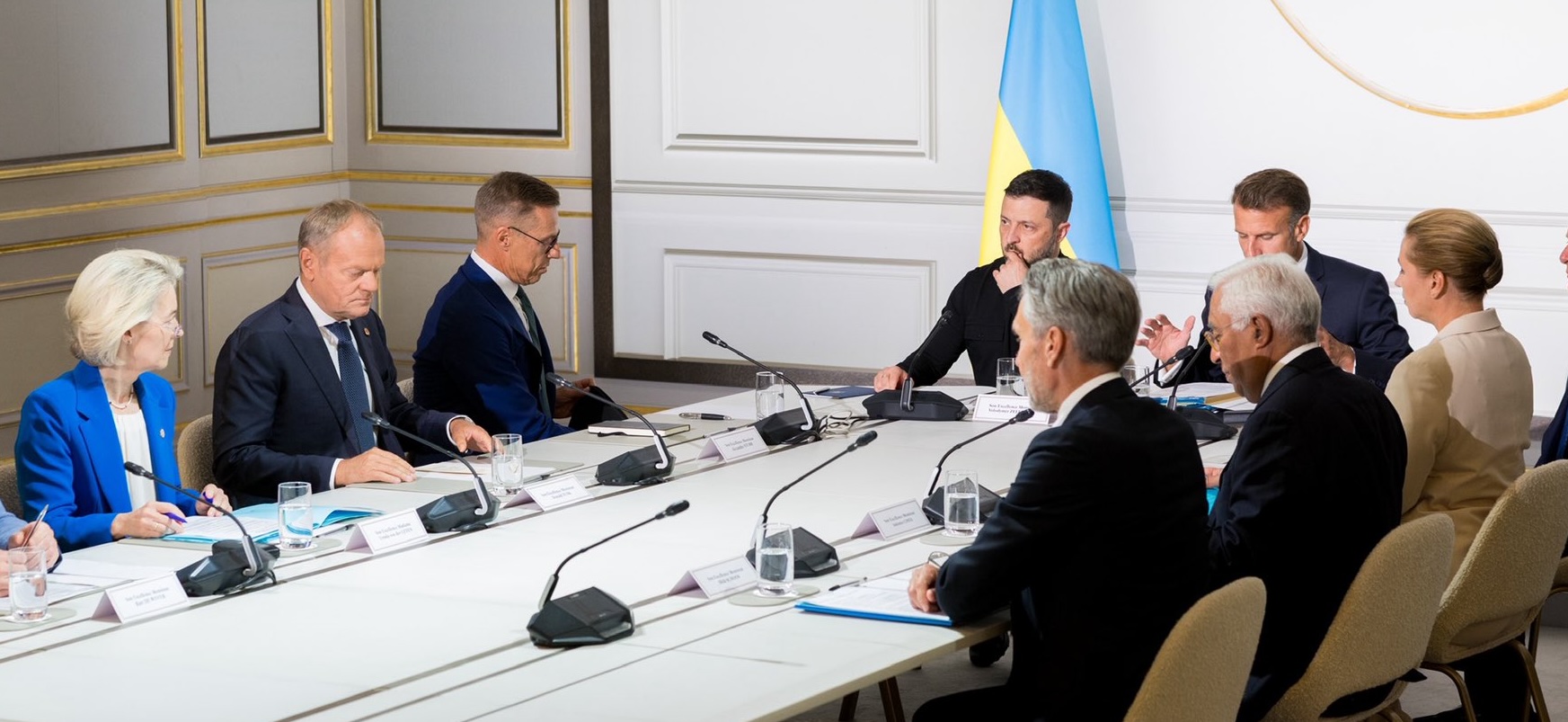Already a subscriber? Make sure to log into your account before viewing this content. You can access your account by hitting the “login” button on the top right corner. Still unable to see the content after signing in? Make sure your card on file is up-to-date.
Multiple Western countries have pledged to deploy military assets in an effort to provide long-term security guarantees to Ukraine if a ceasefire deal with Russia is reached.
Getting into it: During a meeting in Paris attended by 35 nations, a coalition of 26 countries (dubbed the Coalition of the Willing) formally committed to participating in a postwar security mission designed to deter further Russian aggression. Co-led by France and the United Kingdom, the coalition’s plan involves deploying troops, aircraft, and naval assets in and around Ukraine after the fighting stops. While not all participating nations will send forces directly into Ukraine, each has agreed to contribute in some form (whether through military training, logistical support, intelligence sharing, or monitoring ceasefire compliance between both sides).

France and the UK have signaled their willingness to station forces in post-war Ukraine, though not on active frontlines. The Baltic states of Estonia and Lithuania have also expressed readiness to deploy troops. Others, like Germany and Italy, have been more cautious: Germany has withheld firm troop commitments pending clarity on the US role, while Italy has ruled out deployment entirely but may assist with training and ceasefire monitoring.
Smaller European countries and allies such as Canada, Japan, and Australia have also joined the coalition, though their roles are expected to focus more on financial & humanitarian contributions.
The United States, while not committing boots on the ground, is poised to play a critical backup role. President Trump has expressed support for the coalition’s goals and indicated that the US could provide airpower, reconnaissance, and command-and-control infrastructure to help enforce Ukrainian airspace and monitor Russian activity.
This all comes as Russia has firmly rejected the idea of any Western military presence in Ukraine, calling it a provocation and a pretext for NATO expansion under another name. The Kremlin has insisted it will not accept foreign troops (even under a non-NATO coalition).
Russian officials have also floated the idea of involving countries like China as neutral peacekeepers. Some have issues with this, as China has continued providing dual-use components that fuel Russia’s military-industrial complex in its war in Ukraine.







